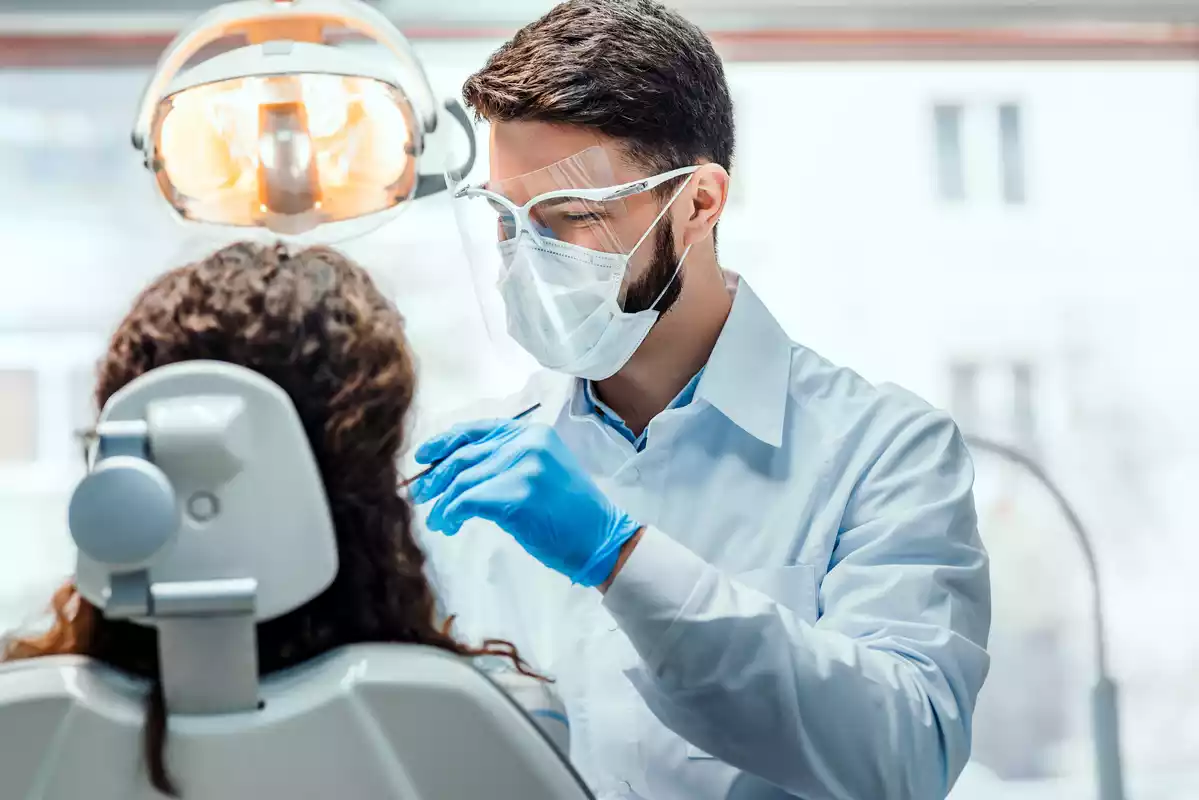
Periodontitis, more popularly known as pyorrhea, is an oral infection that affects the gums and can lead to tooth loss.
It is an oral disease suffered by thousands of people in our country and it is a major risk when it comes to suffering complications due to coronavirus.
Hence the importance of knowing how to take care of our dental health and prevent this disease that is usually underestimated by those who suffer from it and, in most cases, it is not usually diagnosed.
Pyorrhea increases the risk of death and complications from coronavirus
People with pyorrhea are 9 times more likely to die if they catch COVID-19. In addition, they are 4 times more likely to need assisted ventilation and approximately 3.5 times more likely to be admitted to the ICU.
This has been determined by a study published last Monday in the 'Journal of Clinical Periodontology' and carried out by researchers from the Complutense University of Madrid, McGill University in Montreal (Canada) and Qatar University.
"The result of this research has shown that periodontitis is significantly associated with the severity of COVID-19 and with the development of its complications; therefore, patients with periodontal pathology should go to their dentist to obtain the appropriate diagnosis and treatment, and thus, reduce the risk of suffering complications if they become infected with the SARS-CoV-2 virus," according to Professor Mariano Sanz, one of the coordinators of the study.
In this way, the study has served to include pyorrhea in the list of conditions that increase the risk of serious complications derived from coronavirus, which also includes other pathologies such as cancer, obesity and diabetes.
How to prevent pyorrhea?
Pyorrhea is an oral disease suffered by a lot of people, especially among adults.
In spite of being a common infection, experts point out its danger by stressing that it is a disease that in many cases goes undiagnosed.
According to the Mayo Clinic, the medical picture presented by the popular pyorrhea is characterized by a series of symptoms that can be easily noticed.
- Intense purple or red coloration of the gums.
- Bleeding and special sensitivity to touch.
- Pus between the teeth and gums.
- Receding gums (you see more teeth than usual)
- Presence of blood when brushing and pain when chewing or bad breath.
Its causes may be related to bad habits (poor oral hygiene, smoking or unbalanced nutrition) or genetic causes (having suffered from gingivitis or suffering from diseases such as obesity, diabetes or Crohn's disease). There are also cases of pyorrhea associated with the hormonal changes of pregnancy and menopause.
Thus, the best way to prevent this painful and serious gum infection is regular oral hygiene with at least two brushings a day and the use of mouthwashes.
In addition, experts insist on the need to eat a healthy diet, without excess sugars, eliminate bad habits such as smoking and visit the dentist periodically for a check-up.
In the case of suffering from the disease, it is essential to diagnose it as soon as possible in order to receive adequate treatment. Depending on the extent of the infection, the specialist may opt for a non-surgical treatment (usually with the use of antibiotics) or be forced to a more aggressive intervention.
[This is a translation of the original article"Cómo prevenir la piorrea, la enfermedad que dispara el riesgo de fallecer por Covid" published in espanadiario.net]

